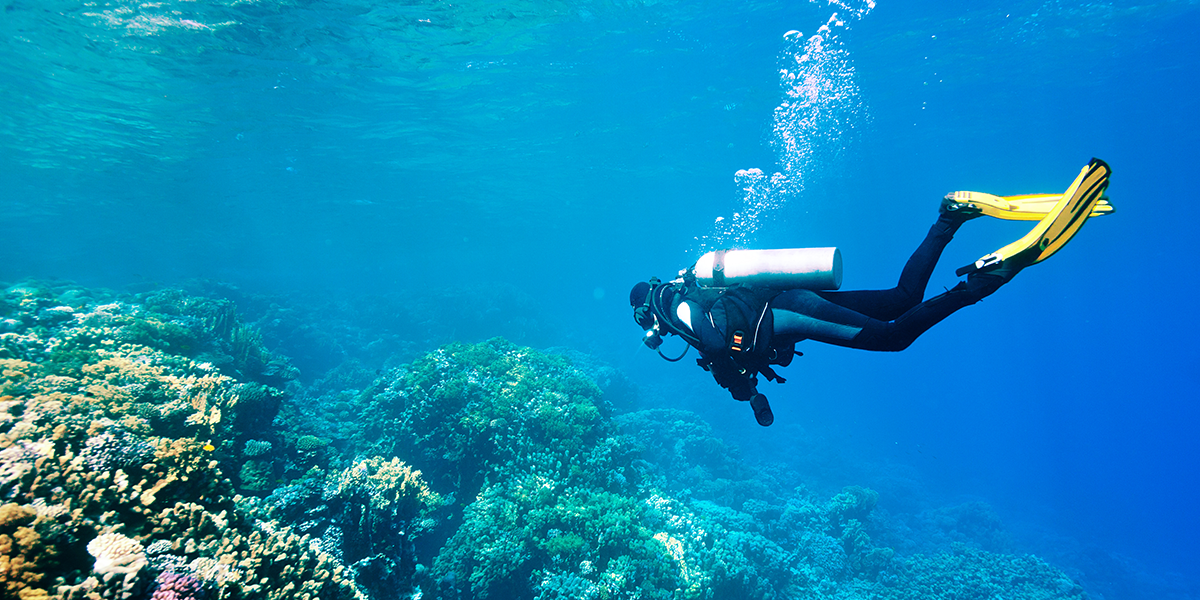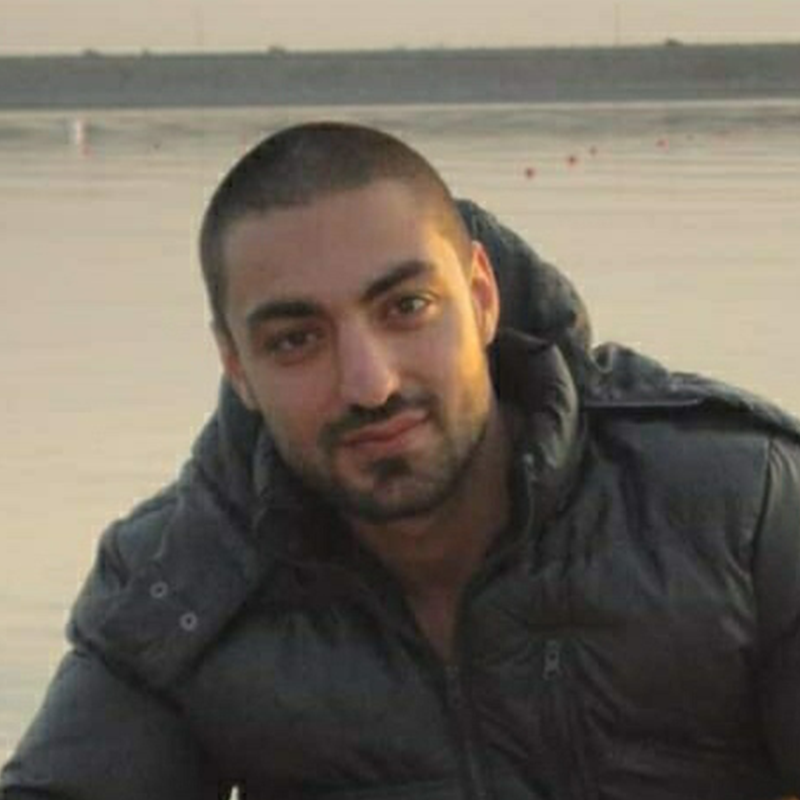How Did My Diving Adventure Start?
My story, which began at the age of 13 with the duties of washing dishes, washing a boat, and other similar jobs, has evolved as time passed by and turned into my way of living. My diving adventure began when I occasionally met with the former Special Ops Commander, who liked to say that his flesh and bones belonged to him, and who gave me training, in intensity reminiscent of a fight in the ring, only underwater. The sooner the preparation is completed, the more time will be left for me to don the equipment and dive.
When my dive instructor said that, when underwater, we would take off the mask, pour out the seawater, and put it on again, I was lost in guessing what this man meant... That seemed to me like an impossible thing. I did not like the plan, and even my desire to dive diminished. My excitement was replaced by the idea of slowing things down as much as possible and avoiding diving.
Until That First Diving Day...
When the day of the dive came, my heart was pounding as if it was about to explode. The equipment I was wearing was so heavy that I felt like I was slowly sweating. The boat work, which I tried to finish as soon as possible, began to seem sweeter... When I put my head in the water and took the first breath, everything I felt disappeared and sweet excitement kicked in. The first dive was followed by the second and the third ones, my excitement gave way to experience, and I became happier and happier waiting for the next dive.
“To be underwater is to admit the unknown. Come here knowing that you will be captured, but also remain confident that you can get out.”-Nicholas Mevoli.
Let Us Dream of This Freedom Together!
Diving always has a buddy system. So we can consider it a team sport. Before diving into the water, partners always examine each other and compensate for shortcomings. Buddy Check includes inspecting the correct connection of the equipment, the condition of the equipment, the right choice of equipment and its operationality, the physical and psychological state of the dive partner, that is, the two are checking each other every time.
The situation does not differ much from our business life. In fact, the sales process is only successful when different departments carry out their buddy checks in full and in parallel, in other words, consistently. If we act as a team in the face of our clients, we also take pride in successful teamwork. Or, by noting and sharing the received feelings, we can attract a new client to our company, as if we paid attention to the beauty of the sea, and we share our feelings with our colleagues and associates.
Before diving, the dive site is most of the time known in advance. The diver and his partner should listen carefully to the diving instruction. The briefing is essentially a dive plan, an underwater to-do list. It includes such topics as how many meters to stay at altitude, time to return, and what we will see underwater. For example, "We will signal each other that everything is in order, after every 10 last." After listening to the briefing, diving partners should plan for possible positive or negative situations. It is necessary to decide what to do in an emergency, to anticipate what actions to take at the moment of supporting each other, and to make their own plans. They act together in an emergency and together talk about the beauties they see when they go upstairs. That is why it is necessary for the less experienced diver to be accompanied by an experienced one. The same rules apply to group dives, which shall also be exercised consistently.
Now imagine the endless blue, you turn around 360 degrees, and all you can see is blue water. The moment you point your arms to the right and left, you are ready to fly in any direction you want... Feel absolute calm, feel how slowly everything is moving, and try to focus on your breath in a state of deep relaxation. Now you have become one with the sea, and you hear nothing besides it. It's time to enjoy nature.
If this is your first-time scuba dive, this is called a "discovery dive". The name speaks for itself. With a dive instructor, you will take your first steps towards underwater breathing and freedom in a beautiful bay (or pool) with a maximum depth of 5 meters.
The instructor will give you a short briefing to help you relax before diving. They will also briefly explain the purpose of the equipment used. Once you have clarified basic questions, such as how to communicate underwater, how to breathe properly, how to clean your mask when it fogs up, and how to balance the pressure in your ears, you will be ready to dive.
Then you go into the water with an instructor. First, you must breathe through the regulator with your head under the water and wait until you adapt underwater; no action will be taken until you are completely relaxed. If everything is in order, you will begin to take your first steps in the company of a trainer and get acquainted with the underwater world. The anxiety that you feel at this moment gives way to the fascination with dancing fish, corals, the beauty of the place where you dive, and the adrenaline in your body.
Anyone Can Do Scuba Diving Unless One Has Health Problems That Prevent Diving!
As long as you follow the safety rules, diving is less dangerous than getting a flowerpot drop on your head while walking along the road.
If you have a serious cardiovascular or ear condition, you should always consult a doctor and obtain permission before diving. Contrary to popular belief, you do not need to be a good swimmer, divers do not even have to be able to swim because the equipment used during diving can keep one on the surface of the water. However, being accustomed to water is recommended to feel more comfortable. In addition, people with disabilities can also dive with an instructor.
I would like to share with you the film Diving is Freedom, Red Sea Documentary, which I recommend you to watch:
A Star For Everyone...
If you think, that you should have been born with gills, you can start training to get your dive badges and dive with these documents anywhere in the world. Diving badges also have grades. To obtain each of them, you must meet the required educational requirements and pass written and practical exams. There are several diving training institutions around the world and in our country that issue these badges. The basis is the same, however, teaching methods may vary depending on the agreements of the Diving Federations of each country. Some of these institutions are PADI, CMAS, and SSI.
After you receive your dive badges, many related areas will interest you. You may want to specialize and take individual pieces of training in some areas such as underwater photography, underwater life exploration, cave diving, and exploring different parts of the world. Or you can propose to your girlfriend when diving with sharks as I did.
Each subsequent dive does not let the excitement of the first day fade away. Perhaps it is this wonderful feeling that sustains my love of diving. Because every time you dive, you get new experiences and learn something new. When you see a unique image of every bay, every depth, and every place before your eyes, you will always experience a feeling of surprise and excitement, contrary to the standards.
Some Words About the Underwater Wonders:
- Seahorses are the only creatures in which males become pregnant and give birth to offspring.
- Dolphins are the most clever creatures in the sea. Their ability to recognize themselves in the mirror sets them apart from other living beings. In addition, since they have very powerful sonars, they are used in finding mines and bombs underwater, and some military armies even have their dolphins.
- Coral reefs form a natural barrier against large ocean waves and tides and help protect the coastline. The fish and other crustaceans they contain are also an important source of food and livelihood for humans.
- Sea eggplants cleanse the seas by dissolving heavy metals in the sand. In other words, they act as a filter.
- The sea bass fish is a hermaphrodite that spends a certain period of its life as a female it loses its female genital organ at the age of 18 and lives the rest of its life as a male with a developing male genital organ.
- Octopuses, which only mate once in a lifetime, carefully place their sesame-sized cubs at the bottom of their burrow and, for the safety of their offspring, do not move until they have completed the 2-month feeding. In this process, they lose almost 60% of their weight.
Stay Healthy...

.jpg)









Fırat works as a Sales Consultant in the Retail Segment of the Borusan Cat family, which he joined in 2020. Married with one child and a Padi Dive Master vs Cmas certified diver. Open to innovations, likes to think positively, and believes in the power of positive thinking. Spends his free time with family, friends and camping, diving, fishing, and playing basketball.